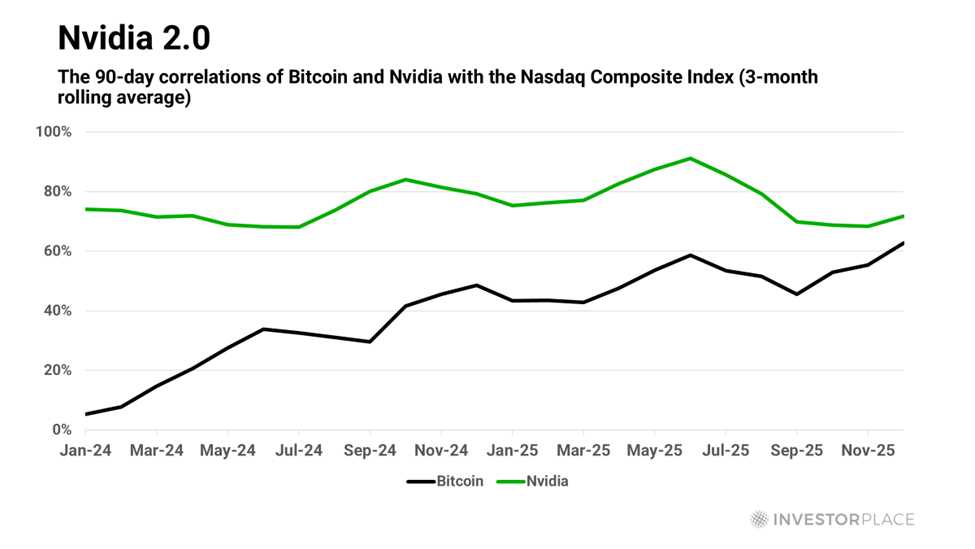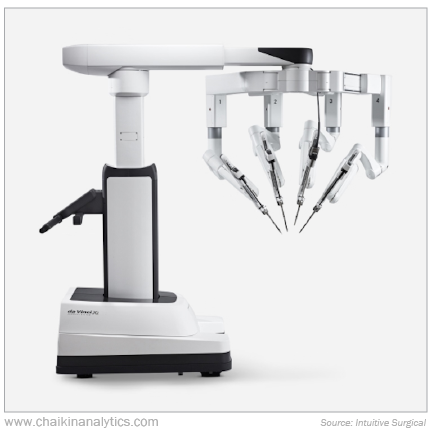Investing in AI: Why the iShares ETF is a Smart Choice for Diversification
The artificial intelligence (AI) industry is just beginning, yet it has already shown immense potential for growth. Since early 2023, Nvidia’s (NASDAQ: NVDA) market capitalization skyrocketed from $360 billion to $3.3 trillion, driven largely by increased sales of its AI data center chips.
As the AI sector rapidly evolves, determining long-term leaders and laggards is challenging. For many investors, a safer approach may be to purchase an exchange-traded fund (ETF) that includes a variety of AI stocks. This strategy could help reduce risk by spreading investments across multiple companies.
The iShares Expanded Tech Sector ETF (NYSEMKT: IGM) features nearly all of the leading AI stocks, including Nvidia. Here’s why it might be an excellent choice for investors at any experience level.

Image source: Getty Images.
Top AI Stocks in One Convenient ETF
The iShares ETF holds a diverse portfolio of 276 stocks. It is not solely an AI fund; instead, it invests across the technology, communication services, and consumer discretionary sectors. Fortunately for investors, many dominant companies in these areas are heavily investing in AI development.
Although the iShares ETF contains hundreds of stocks, it maintains a focused approach. Its top three holdings make up 25.3% of the fund’s value:
Data source: iShares. Portfolio weightings are accurate as of Dec. 16, 2024, and are subject to change.
Some of the key players in the AI space are Meta, Nvidia, and Apple. Meta developed Llama, a highly popular open-source large language model (LLM) that has been downloaded over 600 million times. The company is leveraging Llama to enhance features on Facebook and Instagram, while also enabling businesses to create AI software affordably.
Next year, Meta is set to launch Llama 4, which CEO Mark Zuckerberg claims may become the most advanced LLM in the industry—a noteworthy milestone, considering companies like OpenAI have had several years of development lead time.
Nvidia leads the industry with its graphics processors (GPUs) tailored for AI development. Recently, the company began delivering its new Blackwell chips, which significantly outperform its flagship H100. Consequently, rapid growth in sales is expected, particularly as Nvidia is poised to emerge as one of the tech sector’s best performers next year.
Apple has also entered the AI conversation with its launch of Apple Intelligence, bringing a suite of AI features to new iPhones, iPads, and Macs. This software can summarize emails and text messages, proofread, and generate images. Additionally, it integrates new functionalities into Siri, making it smarter and more useful.
With 2.2 billion active devices globally, Apple could emerge as a leading AI consumer access point.
Besides its top three stocks, the iShares ETF includes other significant AI players like Microsoft, Alphabet, Oracle, and Advanced Micro Devices.
Maximizing Investments: The Power of Compound Growth
Since its inception in 2001, the iShares ETF has provided a compound annual return of 10.9%. Recently, this rate jumped to an accelerated compound annual gain of 20.1% over the last decade, fueled by the rising adoption of technologies such as cloud computing, enterprise software, and now AI.
The following table illustrates potential returns from investing $500 monthly over different timeframes based on various growth rates:
|
Monthly Investment |
Compound Annual Return |
Balance After 10 Years |
Balance After 20 Years |
Balance After 30 Years |
|---|---|---|---|---|
|
$500 |
10.9% |
$109,351 |
$431,517 |
$1,385,024 |
|
$500 |
15.5% (midpoint) |
$144,201 |
$814,558 |
$3,941,733 |
|
$500 |
20.1% |
$192,926 |
$1,605,356 |
$11,972,727 |
Calculations by author.
However, achieving an annual gain of 20% consistently over 30 years is highly unlikely for the iShares ETF or any other fund. If Nvidia were to grow at that rate for three decades, it would have a market cap of $783 trillion—significantly exceeding today’s entire U.S. economy. This example illustrates the limits on sustained high returns over time.
The S&P 500, established in 1957, has averaged a return of 10.4% and includes 500 of the best companies on U.S. exchanges.
Despite the challenges, the iShares ETF could still convert a $500 monthly investment into $1 million over 30 years, even if its returns revert to the long-term average of 10.9%. Given the extraordinary potential of AI, forecasts suggest it could add as much as $7 trillion to the global economy in the next decade, according to Goldman Sachs, with PwC predicting an even higher impact of $15.7 trillion by 2030.
While these estimates differ significantly, they reflect Wall Street’s optimism about AI’s future. However, if AI fails to meet expectations, leading firms like Meta Platforms, Nvidia, and Apple could see a major decrease in their current value.
As a precaution, investors should consider adding the iShares ETF to a well-rounded portfolio that includes various funds and individual stocks.
Is Now the Right Time to Invest in iShares Trust – iShares Expanded Tech Sector ETF?
Before purchasing shares in the iShares Trust – iShares Expanded Tech Sector ETF, it’s wise to note the following:
The Motley Fool Stock Advisor analyst team has recently highlighted their picks for the 10 best stocks to invest in right now, and the iShares Trust – iShares Expanded Tech Sector ETF did not make the list. The selected stocks might yield significant returns in the upcoming years.
For instance, when Nvidia was recommended on April 15, 2005, a $1,000 investment would have grown to $822,755!*
Stock Advisor offers investors straightforward strategies for success, including portfolio-building advice, regular updates from analysts, and two new stock recommendations monthly. Since 2002, this service has outperformed the S&P 500 by a factor of more than four.*
Explore the 10 top stocks »
*Stock Advisor returns as of December 16, 2024
Suzanne Frey, an executive at Alphabet, sits on The Motley Fool’s board of directors. Randi Zuckerberg, a former market development director at Facebook and sibling to CEO Mark Zuckerberg, also holds a position on The Motley Fool’s board. Anthony Di Pizio has no stake in any mentioned stocks. The Motley Fool owns shares in and recommends Advanced Micro Devices, Alphabet, Apple, Goldman Sachs Group, Meta Platforms, Microsoft, Nvidia, and Oracle. The Motley Fool suggests certain options related to Microsoft. Full disclosure policy can be found on their website.
The views and opinions expressed herein are those of the author and do not necessarily reflect those of Nasdaq, Inc.









